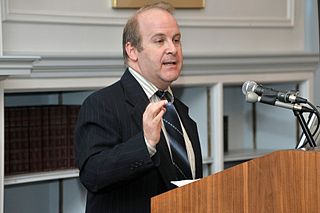Related Research Articles
Discussions of race and intelligence – specifically regarding claims of differences in intelligence along racial lines – have appeared in both popular science and academic research since the modern concept of race was first introduced. With the inception of IQ testing in the early 20th century, differences in average test performance between racial groups have been observed, though these differences have fluctuated and in many cases steadily decreased over time. Complicating the issue, modern science has concluded that race is a socially constructed phenomenon rather than a biological reality, and there exist various conflicting definitions of intelligence. In particular, the validity of IQ testing as a metric for human intelligence is disputed. Today, the scientific consensus is that genetics does not explain differences in IQ test performance between groups, and that observed differences are environmental in origin.

The SAT is a standardized test widely used for college admissions in the United States. Since its debut in 1926, its name and scoring have changed several times. For much of its history, it was called the Scholastic Aptitude Test and had two components, Verbal and Mathematical, each of which was scored on a range from 200 to 800. Later it was called the Scholastic Assessment Test, then the SAT I: Reasoning Test, then the SAT Reasoning Test, then simply the SAT.

Elliot Aronson is an American psychologist who has carried out experiments on the theory of cognitive dissonance and invented the Jigsaw Classroom, a cooperative teaching technique that facilitates learning while reducing interethnic hostility and prejudice. In his 1972 social psychology textbook, The Social Animal, he stated Aronson's First Law: "People who do crazy things are not necessarily crazy", thus asserting the importance of situational factors in bizarre behavior. He is the only person in the 120-year history of the American Psychological Association to have won all three of its major awards: for writing, for teaching, and for research. In 2007, he received the William James Award for Lifetime Achievement from the Association for Psychological Science, in which he was cited as the scientist who "fundamentally changed the way we look at everyday life". A Review of General Psychology survey, published in 2002, ranked Aronson as the 78th most cited psychologist of the 20th century. He officially retired in 1994 but continues to teach and write.
Stereotype threat is a situational predicament in which people are or feel themselves to be at risk of conforming to stereotypes about their social group. It is theorized to be a contributing factor to long-standing racial and gender gaps in academic performance. Since its introduction into the academic literature, stereotype threat has become one of the most widely studied topics in the field of social psychology.

Claude Mason Steele is a social psychologist and emeritus professor at Stanford University, where he is the I. James Quillen Endowed Dean, Emeritus at the Stanford University Graduate School of Education, and Lucie Stern Professor in the Social Sciences, Emeritus.
The Stanford Achievement Test Series, the most recent version of which is usually referred to simply as the "Stanford 10" or SAT-10, is a set of standardized achievement tests used by school districts in the United States and in American schools abroad for assessing children from kindergarten through high school. Millions of students have taken the test each year. First published in 1922, the test is now in its tenth version. It is produced by the publishing company Harcourt, and should not be confused with the SAT college admission test published by the College Board. Although in many states it is being replaced by state-created tests, it is not equivalent to most of these tests in that the Stanford series are more comprehensive in scope than the newer assessments. The test is available in 13 levels that roughly correspond to the year in school, but the correspondence is not exact. Each level of the test is broken into subtests or strands covering various subjects such as reading comprehension, mathematics problem-solving, language, spelling, listening comprehension, science, and social science.

Moisés Salinas Fleitman is a Mexican scholar of developmental and social psychology, a multi-cultural educator, a Zionist political activist, and the former Chief diversity officer at Central Connecticut State University and Rector (academia) at ORT University Mexico.
Aversive racism is a social scientific theory proposed by Samuel L. Gaertner & John F. Dovidio (1986), according to which negative evaluations of racial/ethnic minorities are realized by a persistent avoidance of interaction with other racial and ethnic groups. As opposed to traditional, overt racism, which is characterized by overt hatred for and discrimination against racial/ethnic minorities, aversive racism is characterized by more complex, ambivalent expressions and attitudes nonetheless with prejudicial views towards other races. Aversive racism arises from unconscious personal beliefs taught during childhood. Subtle racist behaviors are usually targeted towards African Americans. Workplace discrimination is one of the best examples of aversive racism. Biased beliefs on how minorities act and think affect how individuals interact with minority members.

In social psychology, a stereotype is a generalized belief about a particular category of people. It is an expectation that people might have about every person of a particular group. The type of expectation can vary; it can be, for example, an expectation about the group's personality, preferences, appearance or ability. Stereotypes are often overgeneralized, inaccurate, and resistant to new information. A stereotype does not necessarily need to be a negative assumption. They may be positive, neutral, or negative.
Prep for Prep is a leadership development and gifted education program dedicated to expanding educational access to students of color. The organization's programs are targeted toward high achieving New York City minority students and helps with scholarships placement into many of the most respected secondary schools and colleges in the country.
Linda Douglass is an American political advisor, former government official, and former journalist who served as the head of communications for Bloomberg L.P., as well as a correspondent for ABC News, often reporting for World News Tonight. Douglass had previously served as a communications advisor in the Obama administration.
Herman George Canady was an American social psychologist. Canady, who was black, was the first psychologist to examine the role of the race of the examiner as a bias factor in IQ testing.

The sociology of race and ethnic relations is the study of social, political, and economic relations between races and ethnicities at all levels of society. This area encompasses the study of systemic racism, like residential segregation and other complex social processes between different racial and ethnic groups.
An implicit bias or implicit stereotype is the pre-reflective attribution of particular qualities by an individual to a member of some social out group.
The racial achievement gap in the United States refers to disparities in educational achievement between differing ethnic/racial groups. It manifests itself in a variety of ways: African-American and Hispanic students are more likely to earn lower grades, score lower on standardized tests, drop out of high school, and they are less likely to enter and complete college than whites, while whites score lower than Asian Americans.

Amy Joy Casselberry Cuddy is an American social psychologist, author and speaker. She is a proponent of "power posing", a self-improvement technique whose scientific validity has been questioned. She has served as a faculty member at Rutgers University, Kellogg School of Management and Harvard Business School. Cuddy's most cited academic work involves using the stereotype content model that she helped develop to better understand the way people think about stereotyped people and groups. Though Cuddy left her tenure-track position at Harvard Business School in the spring of 2017, she continues to contribute to its executive education programs.
Sex differences in human intelligence have long been a topic of debate among researchers and scholars. It is now recognized that there are no significant sex differences in average IQ, though particular subtypes of intelligence vary somewhat between sexes.
Joya Powell, also known as Joya Powell-Goldstein, is a Bessie Award-winning choreographer, educator, and activist. As the founding artistic director of Movement of the People Dance Company, she is known for creating politically scorching dance-theatre that confronts issues of race and justice.
Intergroup relations refers to interactions between individuals in different social groups, and to interactions taking place between the groups themselves collectively. It has long been a subject of research in social psychology, political psychology, and organizational behavior.
Cassandra Cybele Raver is an American developmental psychologist currently serving as Provost and Vice Chancellor for Academic Affairs at Vanderbilt University. She previously served as Deputy Provost at New York University and Professor of Applied Psychology in the Steinhardt School of Culture, Education, and Human Development at NYU.
References
- ↑ "Joshua Aronson". Steinhardt School of Culture, Education, and Human Development. Retrieved 2017-09-30.
- ↑ Hartocollis, Anemona (2016-06-26). "Tutors See Stereotypes and Gender Bias in SAT. Testers See None of the Above". The New York Times. ISSN 0362-4331 . Retrieved 2017-09-30.
- ↑ "Stereotype threat widens achievement gap". American Psychological Association. 2006-07-15. Retrieved 2017-09-30.
- ↑ Viadero, Debra (2007-10-24). "Experiments Aim to Ease Effects of 'Stereotype Threat'". Education Week. Retrieved 2017-09-30.
- ↑ McNamara, Melissa P. (2004). "In Fighting Stereotypes, Students Lift Test Scores". The New York Times. ISSN 0362-4331 . Retrieved 2017-09-30.
- ↑ Aronson, Joshua; Jannone, Sheana; McGlone, Matthew; Johnson-Campbell, Tanisha (2009). "The Obama effect: An experimental test". Journal of Experimental Social Psychology. 45 (4): 957–960. doi:10.1016/j.jesp.2009.05.006.
- ↑ Tough, Paul. "The Ninth Annual Year in Ideas: Social Science". The New York Times Magazine. Retrieved 2017-09-30.